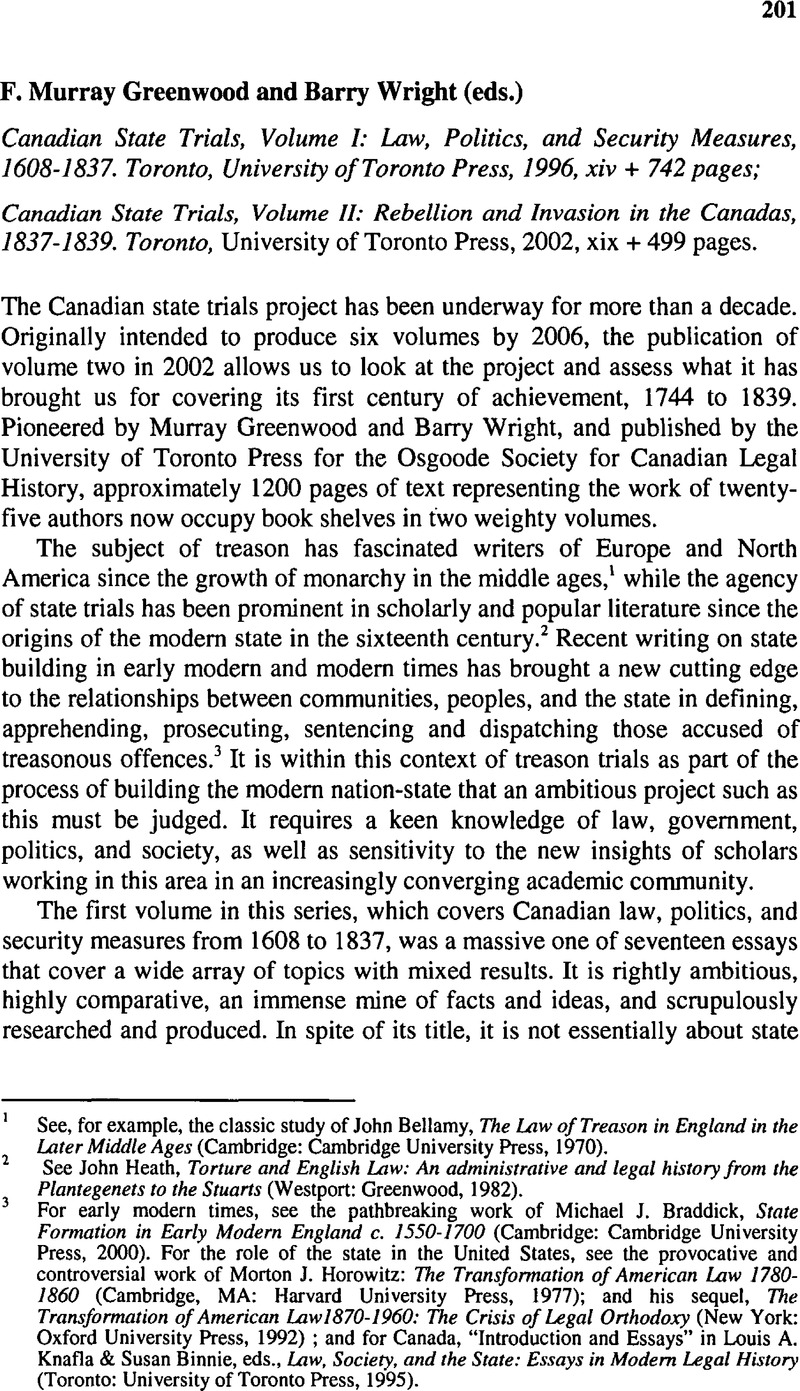No CrossRef data available.
Published online by Cambridge University Press: 18 July 2014

1 See, for example, the classic study of Bellamy, John, The Law of Treason in England in the Later Middle Ages (Cambridge: Cambridge University Press, 1970).CrossRefGoogle Scholar
2 See Heath, John, Torture and English Law: An administrative and legal history from the Plantegenets to the Stuarts (Westport: Greenwood, 1982).Google Scholar
3 For early modern times, see the pathbreaking work of Braddick, Michael J., State Formation in Early Modern England c. 1550–1700 (Cambridge: Cambridge University Press, 2000).CrossRefGoogle Scholar For the role of the state in the United States, see the provocative and controversial work of Horowitz, Morton J.: The Transformation of American Law 1780–1860 (Cambridge, MA: Harvard University Press, 1977)Google Scholar; and his sequel, The Transformation of American Law 1870–1960: The Crisis of Legal Orthodoxy (New York: Oxford University Press, 1992); and for Canada, “Introduction and Essays” in Knafla, Louis A. & Binnie, Susan, eds., Law, Society, and the State: Essays in Modem Legal History (Toronto: University of Toronto Press, 1995).Google Scholar
4 The state trials discussed before 1837 in vol. II were in Nova Scotia 1777 at 182–84, Lower Canada 1797 at 263–69, and Upper Canada 1814 at 387–95.
5 McNaught, Kenneth, “Political Trials and the Canadian Political Tradition” in Friedland, Martin, ed., Courts and Trials: A Multidisciplinary Approach (Toronto: University of Toronto Press, 1975)Google Scholar; and more generally, his The Pelican History of Canada (Harmondsworth: Penguin Books, 1969).